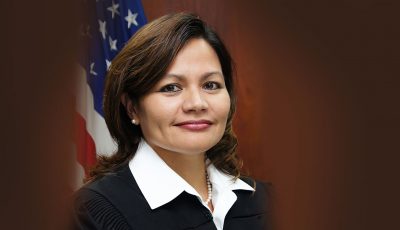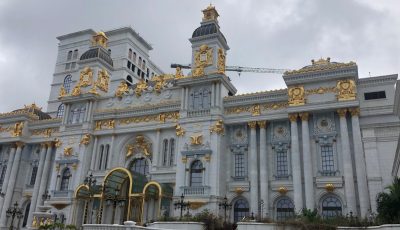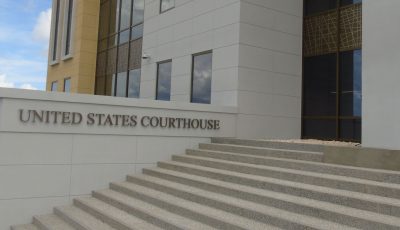‘Immunity clause inapplicable in lawsuit against JGO’
The Office of the Governor and Gov. Ralph DLG Torres have asked the Superior Court to deny the House Committee on Judiciary & Governmental Operations recent motion to dismiss Torres’ suit against the committee, saying the JGO committee’s main argument does not apply to the committee as a whole to begin with.
Over a week ago, the JGO committee asked the court to dismiss Torres’ suit against the committee, ultimately arguing that the JGO is protected under the CNMI’ Constitution’s speech or debate clause, which provides them immunity from being sued.
In response to that, Torres’ lawyers, Gilbert Birnbrich and Joseph Horey, argue that because the lawsuit does not name any specific members of the committee, the immunity clause is inapplicable.

Birnbrich
“The present lawsuit does not name any member of the Legislature, nor seek to impair the functioning of any such member. The immunity clause is, therefore, inapplicable. The committee argues that it is immune from the suit based on the immunity clause. By its plain terms, however, that clause affords limited immunity to individual legislators; it does not immunize a legislative committee from a declaratory judgment action,” the lawyers said.
However, even if the CNMI Constitution’s immunity clause could be deemed applicable under some circumstances to a committee of the Legislature, the two lawyers argue that the clause still does not apply here because the complaint raises claims of executive immunity and lack of legislative purpose.
“A clause conferring legislative immunity does not override the separation of powers nor bestow legislative supremacy,” they told the court.
Torres’ lawyers also addressed the committee’s argument that the immunity clause prevents any judicial review of its actions so long as the action under review is constituted as a “legitimate legislative activity.”
Birnbrich and Horey argue that since the whole point of the governor’s complaint is that the committee was not engaged in legitimate legislative activity, but rather an unconstitutional arrogation of executive power to itself, the committee is preventing the court from determining whether the legislative activity in question was legitimate or constitutional.

Horey
“This argument ‘parks the cart before the horse and declares the race over.’ In other words, the committee assumes a favorable decision on the merits, and then uses that nonexistent favorable decision as a reason to preclude the court from ever reaching the merits in the first place. The committee in effect is saying that, since it was engaged in a legitimate legislative activity, the immunity clause prevents the court from considering or deciding whether the activity it was engaged in was really legitimate or constitutional at all,” they argue.
Lastly, in regards to the committee’s argument that the attorney general is a required party in this suit, Torres argue that the CNMI attorney general is not a required party to this lawsuit because it is not necessary to join the attorney general in order to grant complete relief among the existing parties, and the attorney general claims no interest relating to the subject of this action.
“Complete relief among the existing parties is possible without joining the attorney general. All the declarations that the governor seeks in the four causes of action in his complaint may be issued without the attorney general’s participation. In short, the court may declare the subpoena invalid and unlawful,” the lawyers said.
“The attorney general has not claimed an interest in the subject of this action and in fact has no interest in its outcome. Two months have passed since the committee referred the contempt, and the attorney general has not taken the first step to commence prosecution. The attorney general has not moved to intervene. That is undoubtedly because he has no interest in this lawsuit and is not a necessary party,” the lawyers added.



























